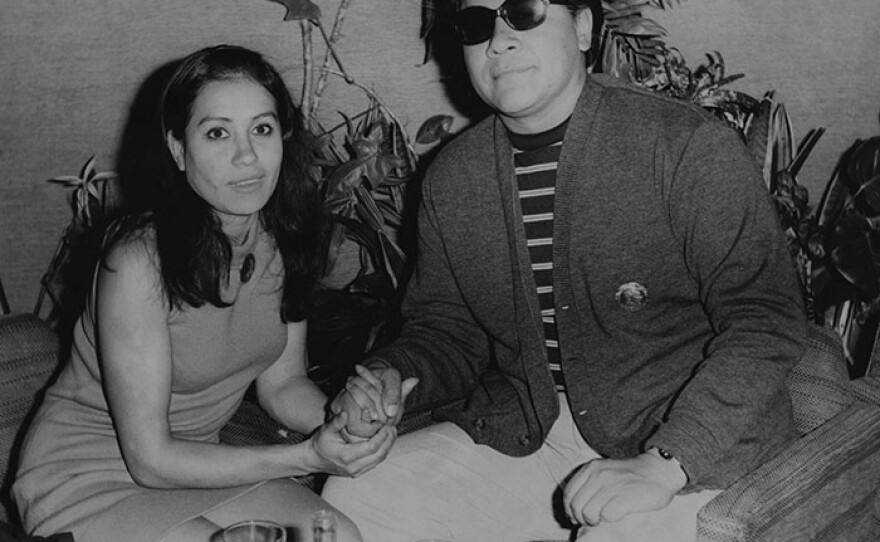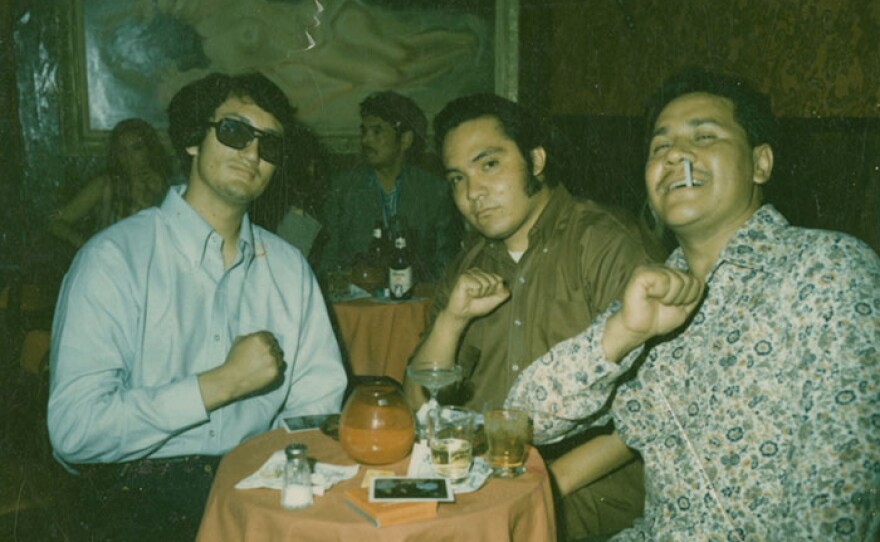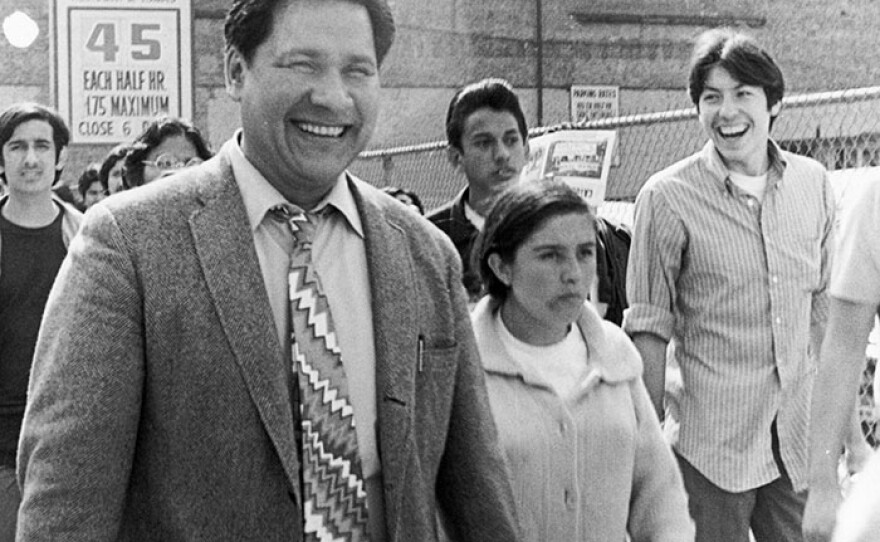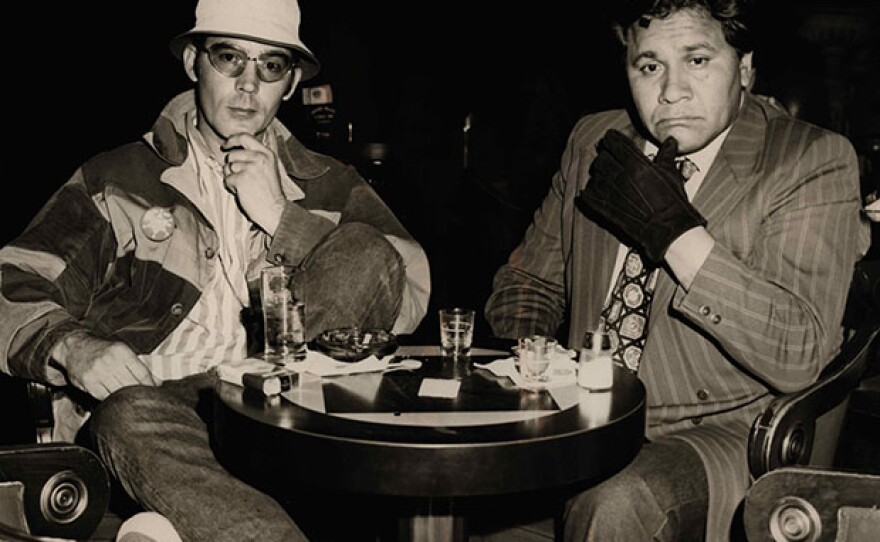—A Look at the Unorthodox Life and Complex Legacy of Oscar Zeta Acosta: The Chicano Movement’s Forgotten Activist Hero, Attorney and Literary Celebrity—
“The Rise And Fall Of The Brown Buffalo” is a fresh and genre-defying film about the life of radical Chicano lawyer, author and countercultural icon Oscar Zeta Acosta — the basis for the character Dr. Gonzo in “Fear and Loathing in Las Vegas,” written by his friend, legendary journalist-provocateur Hunter S. Thompson.
Filmmaker Phillip Rodriguez brings Acosta to life by employing a cinematic style as unorthodox as his subject: weaving archival footage and images with dramatized portrayals of Acosta, Thompson, and other key figures and moments of the era.
The script is culled from Acosta and Thompson’s writings and interviews, as well as letters and journalistic and personal accounts.
The resulting film brings narrative style to documentary filmmaking and paints a portrait of a fascinating, complex and enigmatic man.
Acosta’s powerful literary voice, brash courtroom style and notorious revolutionary antics made him a revered figure within the Chicano movement of the 1960s and 70s, and offered one of the most brazen assaults on the status quo and white supremacy seen at the time.
Yet Acosta, author of two groundbreaking autobiographical novels, is known more for his turn as Thompson’s bumbling sidekick in “Fear and Loathing in Las Vegas” than for his own work exposing racial bias, hypocrisy and repression within the California justice system.
Channeling the spirit of the psychedelic 60s and the joyful irreverence of “Gonzo” journalism, “The Rise And Fall Of The Brown Buffalo” shows Acosta’s personal and creative evolution playing out against the backdrop of a society in turmoil.
From his origins in segregated rural California to his stint as a Baptist missionary in the jungles of Panama, to his radicalization in the Chicano movement of the late 60s and finally to his mysterious disappearance off the coast of Mexico in 1974, director Rodriguez offers a vision of a complex figure at once wholly unique and emblematic of a generation.
Channeling Acosta’s own extravagant mythmaking — the man was known for his enormous ego as well as his prodigious appetites for drugs and alcohol — Rodriguez draws upon Acosta’s writings, legal transcripts and other archival materials, combined with striking visuals and animation, to explore Acosta’s larger-than-life story.

Actors Jesse Celedon and Jeff Harms portray Acosta and Thompson, while an ensemble of performers inhabits a collection of friends, foes and fellow travelers in a series of playful recreations that go beyond a mere presentation of facts, pointing toward a deeper truth.

“I feel it is a storyteller’s obligation to shine new light on stories, such as Acosta’s, that have been systematically neglected or distorted by mainstream culture,” said Rodriguez. “In a society where the Chicano experience is so often reduced to caricature, a sensitive, nuanced rendering of this complex brown man was long overdue.”
Relevant now more than ever, this film explores issues of racial identity, criminal justice, politics and media representation while revealing the personal story of a troubled and brilliant man coming to terms with his identity and finding meaning in the struggles of his people.

WATCH ON YOUR SCHEDULE:
This full episode is available to stream on demand through April 20, 2018.
JOIN THE CONVERSATION:
"The Rise and Fall of the Brown Buffalo" is on Facebook, and you can follow @BrownBuffaloPBS on Twitter.
Follow filmmaker Phillip Rodriguez @PRrodLA on Twitter.
PBS is on Facebook, Instagram, and you can follow @PBS on Twitter.
CREDITS:
Major funding provided by the Corporation for Public Broadcasting. Additional funding provided by Latino Public Broadcasting, California Humanities and the Office of Los Angeles City Councilman Gilbert Cedillo. The film is produced by Rodriguez’s Los Angeles-based production company, City Projects, LLC.
Director/Producer/Writer: Phillip Rodriguez. Cinematographer/Editor/Animator: Claudio Rocha. Writer: David Ventura. Executive Producer: Benicio Del Toro. Producer: Alison Sotomayor. Associate Producer: Ricardo Lopez. Original music by Alejandro Cohen and Aaron Drake.





